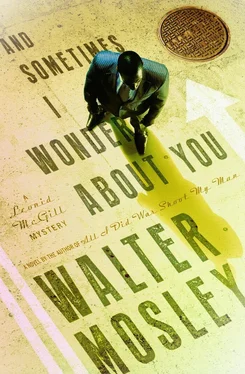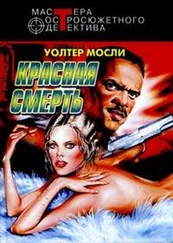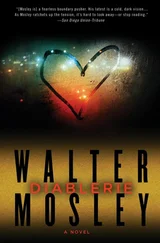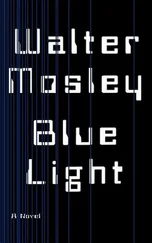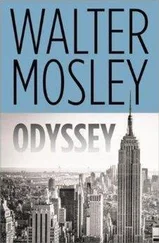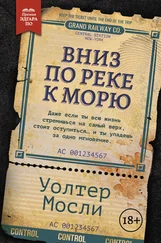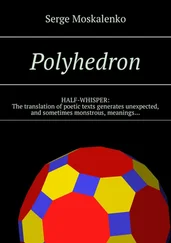I could feel my Adam’s apple writhe in my throat.
I got to my feet and, stumbling a little, took the two and a half steps to the entrance.
When I pulled the door open Aura said, “Oh!” — shocked that it was me.
Tall for a woman, she had a few inches on me. Aura was the color of pure gold that hadn’t been polished for some years. She was nearing the midway mark in her forties with a generous figure that would never go out of style. Her hair was naturally wavy and darkly blond. Her surprised eyes were not brown but that’s as far as I would go trying to define the color. Her mother, I knew, was Danish and her father black Togolese.
Aura was the plant supervisor of the Tesla Building. She was very efficient at her job. The only task she ever failed at was getting me evicted. She tried, and might have succeeded, but then we kind of fell in love.
“Didn’t expect me?” I said to my sometime lover.
“Um,” she said. “I wanted to ask Mardi something.”
“She’s right here,” I said, moving backward and to the side, allowing her room to come in.
Mardi was already on her feet.
“Good morning, Ms. Ullman,” she said. “How can I help you?”
“Um,” she said again.
“I’ll go back to my office and let you ladies talk.”
“No,” Aura said with more emphasis than was necessary.
“Why don’t I go downstairs and get you guys some coffee and bagels?” Mardi offered.
“Thank you,” Aura said to my assistant.
The next thing I knew, Aura and I were sitting in my old visitor’s chairs more or less facing each other.
We had a lot to talk about and nothing to say.
When we met, my wife had left me for a banker named Zool. He turned out to be an embezzler who ran off, somewhere down in South America, leaving Katrina and my blood son, Dimitri, high and dry. And so Katrina returned just when my relationship with Aura was beginning to take form.
We, Aura and I, broke up for a while and had started to get back together a few times. The latest breakup had to do with Katrina again. Aura felt guilty making love to a man whose wife was suicidal.
“How’s Katrina doing?” Aura asked.
“Kinda faded, I guess.”
“Does she need new medication?”
“She needs something,” I said, “but don’t we all?”
Aura decided to ponder that question.
It struck me that sadness had as many striations as a rainbow — only in grays. Hiram Stent was sad because of a miscalculation. He believed that his education, his station in life, would allow him to make choices about how he might live. He lost his job, his wife, and his children; he’d lost his vanity and hope all because somebody named Wills wanted to do financial planning while living on a ranch.
Aura and I, on the other hand, loved each other fiercely but when together we turned morose and downcast.
Mardi had been molested as a child, repeatedly and over many years, and so her sadness descended when there was nothing for her to concentrate on.
“My daughter got into Mount Holyoke,” Aura was saying.
“Good for her,” I said.
“Are you working?” she asked then.
“I’m not sure.”
“What do you mean?”
“I finished one job,” I said. “That was a domestic beef. Those kinds seem to resuscitate now and then. I helped a woman who was being stalked but that only treated the symptom. And then there’s Twill.”
Aura smiled. Most people’s moods lighten when they hear my son’s name. He’s just that kind of guy.
“What about him?” Aura asked.
“He’s been absent and then seen wearing clothes not his style. He hasn’t called in to me and that usually means that he’s into something either illegal or dangerous, or both. Since he’s working with me now it’s more than likely that he’s taken on a job I wouldn’t approve of.”
“He’s got a lot of facets,” Aura agreed.
The jeweler’s term brought Marella to mind. I realized that her skin was very close to the same hue as Aura’s. I wondered if that was the reason I’d taken such risk. Maybe I thought that if I put my life on the line I could receive a night of familiar love.
“What are you thinking, Leonid?”
“That we should have dinner one night next week.”
“I’m free for lunch next Monday,” she said.
Lunch — a single word that says, I don’t want to be alone with you in the evening when you might, and I might, get confused and break the unspoken rules that were chiseled for us on the tombstone your wife almost made.
I didn’t answer and then the door came open. Mardi entered with a small gray cardboard box holding our coffees and bagels.
“That was fast,” I said.
“The coffee cart is usually on floor sixty-five this time of morning,” she said.
Aura stood up and told us both, “I have a meeting down in my office in a few minutes. I’m going to have to take my coffee and run.”
I stayed in my chair.
Aura gathered her coffee and bread.
“So we’ll have to make a plan for Monday,” she said.
“We’ll see,” I replied.
She looked a little lost for a moment and then left.
When the door closed I took out my smartphone and started entering a text.
“She seems a little upset,” Mardi commented.
I erased what I had been typing and said, “Both of us I guess.”
I started typing again.
“She’s a nice lady,” Mardi continued, trying to draw me in.
Instead of answering I sent the text to Aura’s phone. It read: I LOVE YOU.
I was looking at the closed door, thinking that everything was possible but little of that possibility was likely. Life was like a rat’s maze tended by some insane god that tortured and shepherded us for some reason he (or maybe she) could no longer remember. Hiram Stent’s fate was etched on a pauper’s grave somewhere, probably before he was born. He would always make the wrong choices, always come up a dollar short. He could have been the ambassador to France and still the handyman would have taken his wife and children.
“Are you okay, Mr. McGill?”
I turned to look at my assistant. She wore a dress that was something like the flappers wore back nearly a century ago. It was sewn from flimsy fabric somewhere between cream and light pink, the hem coming down to her calves. There was faded beading here and there. It occurred to me that this ensemble had a hint of sexuality to it. This was, to say the least, unusual.
Not for the first time I thought of my assistant as a soul that didn’t so much haunt as spiritually guide by a sense of the world that was more intuitive than anything else.
“Mr. McGill?”
“Have a seat, M.”
Mardi made an abortive move for the walnut swivel chair behind her desk but then decided to take the visitor’s chair Aura had been sitting in. I turned my head so that I was looking into her eyes. Mardi didn’t like people looking directly at her — a leftover from childhood, I imagined.
She turned sideways in the padded chair and looked over at her desk; no doubt searching for another pencil to put in its place.
“Tell me about it,” I said.
“What?”
“Twill.”
“What about him?”
“Something’s goin’ on with him. When Twill disappears I get the feeling that there’s a door somewhere that should be locked but isn’t.”
Mardi smiled because she understood and appreciated my imagistic bent.
She shook her head.
“You’re his best friend, M,” I said. “You can’t tell me that you don’t know what’s happenin’.”
“He had a meeting with somebody on Monday, after you left,” Mardi admitted. “But then I was out Tuesday and Wednesday. He covered for me. I didn’t see him almost all week.”
Читать дальше
